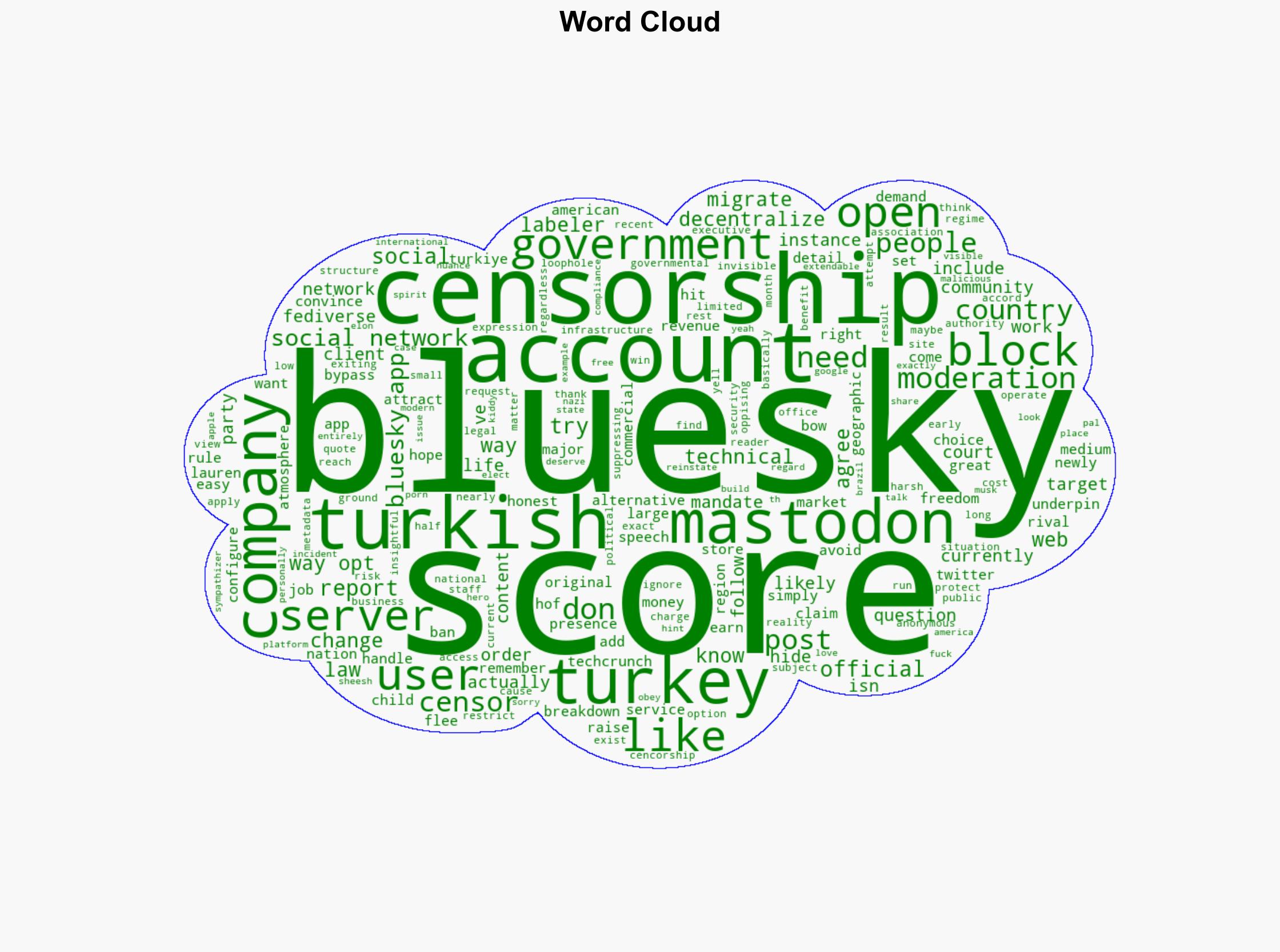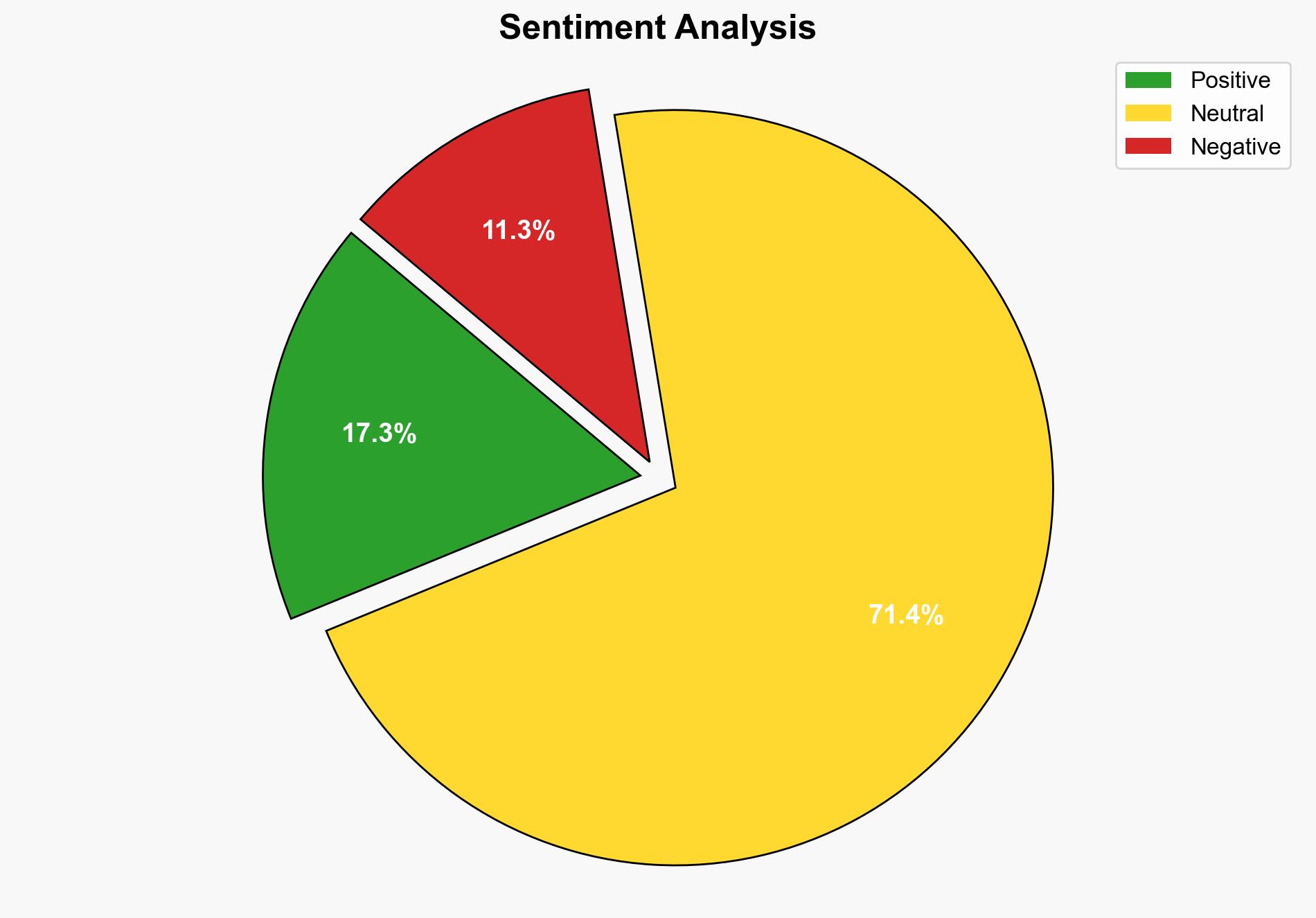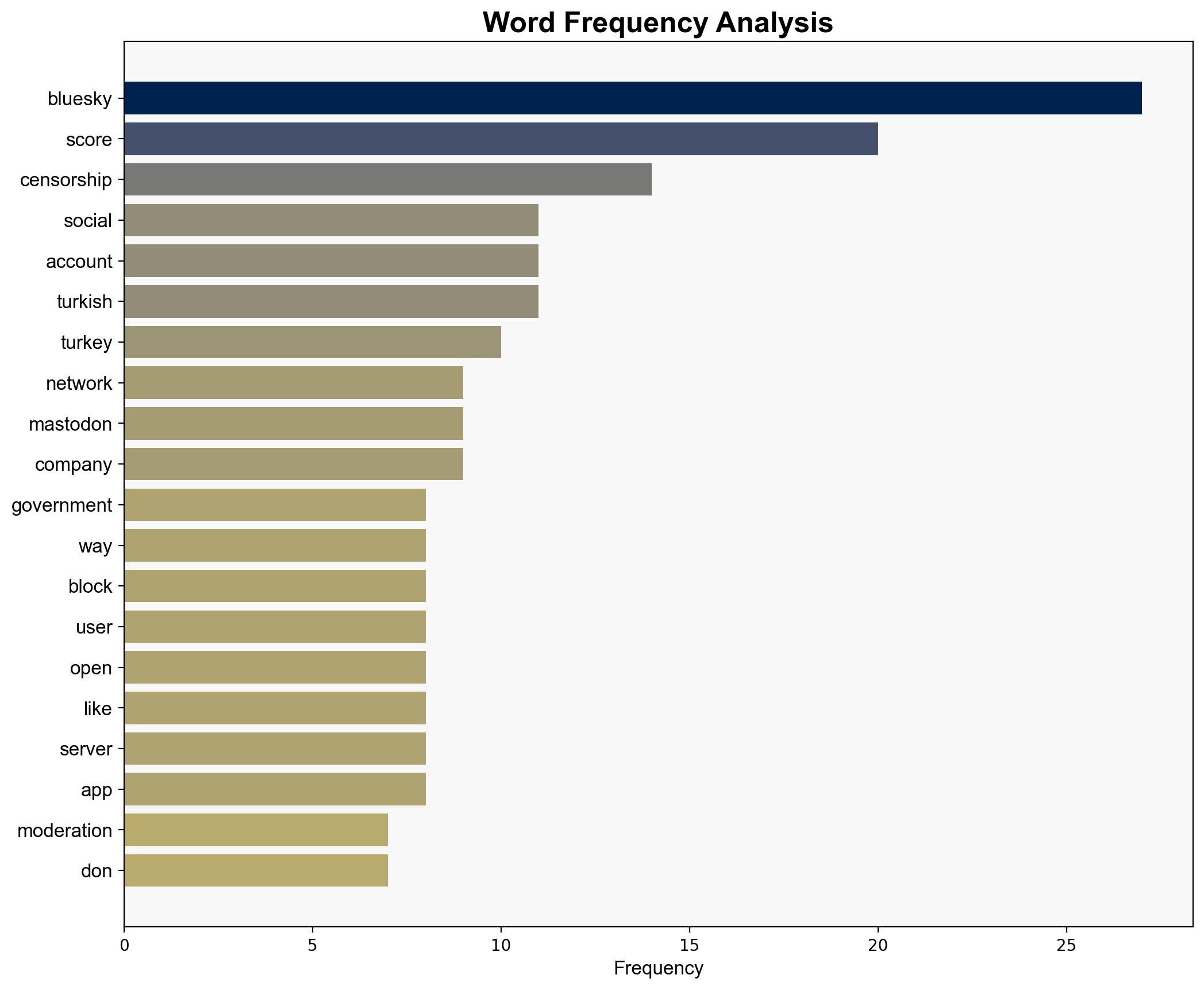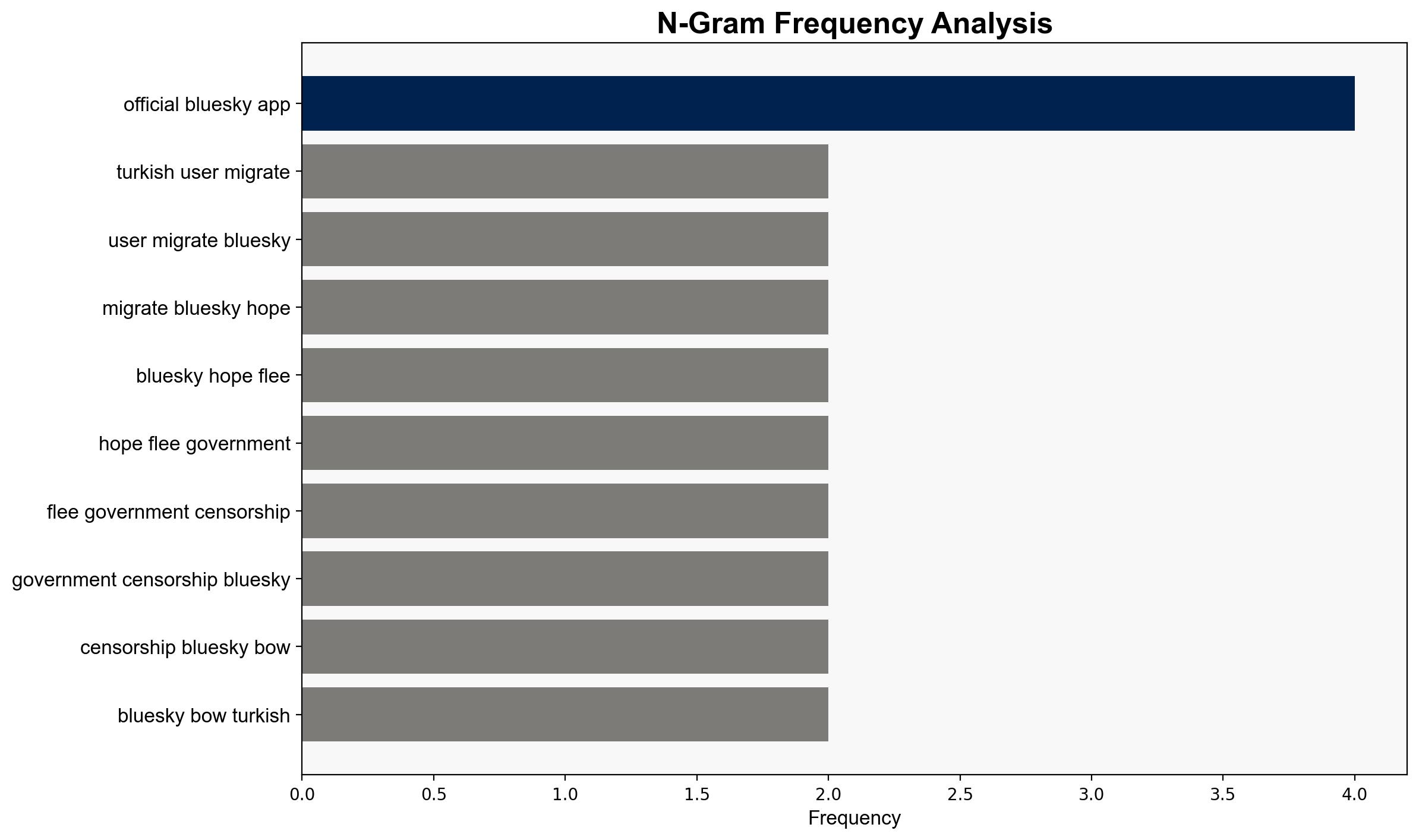Government Censorship Comes To Bluesky – Slashdot.org
Published on: 2025-04-25
Intelligence Report: Government Censorship Comes To Bluesky – Slashdot.org
1. BLUF (Bottom Line Up Front)
The Turkish government’s recent actions to enforce censorship on the social network Bluesky highlight a growing trend of state intervention in digital platforms. This development raises significant concerns about the implications for freedom of expression and the operational challenges faced by decentralized networks. It is crucial to monitor these dynamics as they may influence global digital governance and the strategic landscape of internet freedom.
2. Detailed Analysis
The following structured analytic techniques have been applied to ensure methodological consistency:
Scenario Analysis
The Turkish government’s censorship of Bluesky could lead to several scenarios: increased migration of users to alternative decentralized platforms like Mastodon, potential diplomatic tensions over internet governance, or a shift in Bluesky’s operational strategies to comply with or resist governmental demands. Each scenario presents unique challenges and opportunities for stakeholders.
Key Assumptions Check
It is assumed that decentralized networks inherently resist censorship due to their structure. However, the Turkish case demonstrates that technical and legal pressures can still impose significant constraints. This assumption needs reevaluation to better understand the vulnerabilities of such platforms.
Indicators Development
Key indicators to monitor include changes in user migration patterns to decentralized platforms, legal actions against social networks by governments, and shifts in Bluesky’s moderation policies. These indicators will help assess the evolving landscape of digital censorship.
3. Implications and Strategic Risks
The enforcement of censorship on Bluesky by Turkey poses risks to digital freedom and sets a precedent for other governments to follow suit. This could lead to a fragmented internet where access and expression are heavily regulated by state actors. Additionally, there is a risk of increased geopolitical tensions as countries debate the balance between national security and internet freedom.
4. Recommendations and Outlook
- Encourage dialogue between governments, tech companies, and civil society to establish clear guidelines that balance security needs with freedom of expression.
- Develop contingency plans for platforms facing similar censorship pressures, including technical solutions to bypass restrictions.
- Scenario-based projections suggest a most likely outcome of increased user migration to alternative platforms, with a worst-case scenario of widespread adoption of similar censorship measures by other states.
5. Key Individuals and Entities
Lauren Hof is noted for providing a detailed analysis of the technical aspects of the situation. Further monitoring of her insights could offer valuable perspectives on the evolving technical landscape.
6. Thematic Tags
(‘national security threats, cybersecurity, internet governance, digital freedom’, ‘cybersecurity’, ‘internet governance’, ‘digital freedom’)




